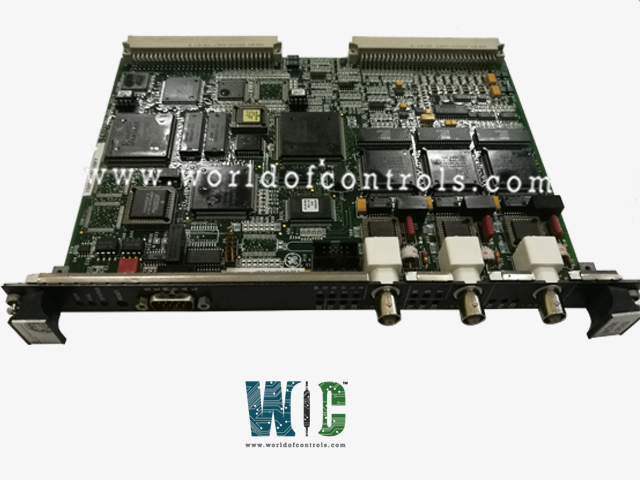
World Of Controls understands the criticality of your requirement and works towards reducing the lead time as much as possible.
IS215VCMIH2BE - VME Bus Master Controller Board is available in stock which ships the same day.
IS215VCMIH2BE - VME Bus Master Controller Board comes in UNUSED as well as REBUILT condition.
To avail our best deals for IS215VCMIH2BE - VME Bus Master Controller Board, contact us and we will get back to you within 24 hours.
SPECIFICATIONS:
Part Number: IS215VCMIH2BE
Manufacturer: General Electric
Series: Mark VIe
Board Type: 6U high VME board
Power supply voltage: 24 V DC
Analog output current: 0-20 mA
Excitation voltage: 24 V dc
Maximum Lead Resistance: 15Ω
Processor: 32-bit digital signal processor
Memory: Dual-port memory
Analog output current: 0-20 mA
Operating temperature: 30 to 50 °C
Size: 17.8 cm high x 33.02 cm
Frequency: 50 or 60 Hz
Technology: Surface Mount
Repair: 3-7 Day
Availability: In Stock
Weight: 2 lbs
Country of Origin: United States
Manual: GEH-6421M
FUNCTIONAL DESCRIPTION:
IS215VCMIH2BE is a VME Bus Master Controller Board manufactured and designed by General Electric as part of the Mark VIe Series used in GE Distributed Turbine Control Systems. The VME Bus Master Controller (VCMI) board is the communication interface between the controller and the I/O boards, and the communication interface to the system control network, known as IONet. VCMI is also the VME bus master in the control and I/O racks and manages the IDs for all the boards in the rack and their associated terminal boards. Multiple I/O racks can be connected to the IONet, each rack with its own VCMI board. The following figure shows three simplex system configurations with local and remote I/O using the VCMI.
The master controller board acts as the central component in the VME bus system, responsible for initiating and controlling data transactions between the various modules connected to the bus. It typically includes features such as address decoding, bus arbitration, data transfer control, interrupt handling, and error detection/correction mechanisms.
INSTALLATION:
A control module contains (at a minimum) the controller and a VCMI. Three rack types can be used: the GE Fanuc integrator’s rack shown in the following figure and two sizes of Mark VI racks shown in the section, VCMI - Bus Master Controller. The GE Fanuc rack is shorter and is used for stand-alone modules with remote I/O only. The Mark VI racks are longer and can be used for local or remote I/O. Whichever rack is used, a cooling fan is mounted either above or below the controller. The stand-alone control module implemented with a GE Fanuc integrator’s rack also requires a VDSK board to supply fan power and provide the rack identification through an ID plug.
WOC has the largest stock of GE Distributed Turbine Control System Replacement Parts. We can also repair your faulty boards. WORLD OF CONTROLS can also supply unused and rebuilt backed-up with a warranty. Our team of experts is available round the clock to support your OEM needs. Our team of experts at WOC is happy to assist you with any of your automation requirements. For pricing and availability on any parts and repairs, kindly get in touch with our team by phone or email.
What is a VME Bus Master Controller Board?
A VME Bus Master Controller Board is a printed circuit board used in VME bus systems to control and manage data transfer between various modules connected to the bus. It serves as the central component responsible for initiating and coordinating data transactions.
What is the role of a VME Bus Master Controller Board?
The primary role of a VME Bus Master Controller Board is to arbitrate bus access, control data transfers, handle interrupts, and ensure the proper functioning of the VME bus system. It coordinates communication between the master and slave modules connected to the bus.
What are the key features of a VME Bus Master Controller Board?
Key features typically include address decoding, bus arbitration, data transfer control, interrupt handling, error detection/correction mechanisms, and interfacing with the VME bus.